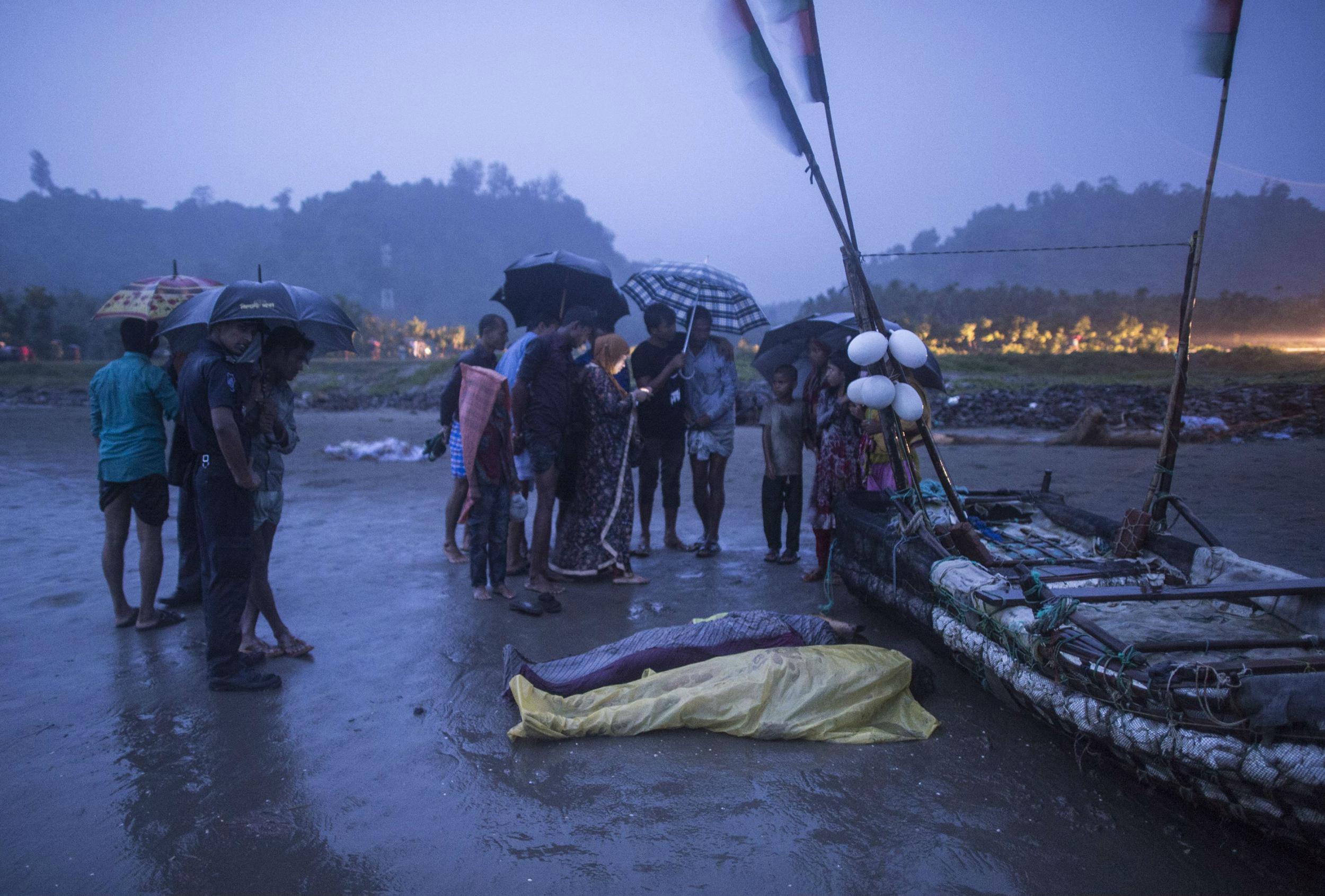Rohingya Muslim crisis: Burma cancels UN visit to site of alleged ethnic cleansing 'because of bad weather'
Aung San Suu Kyi has outraged supporters around the world

Your support helps us to tell the story
From reproductive rights to climate change to Big Tech, The Independent is on the ground when the story is developing. Whether it's investigating the financials of Elon Musk's pro-Trump PAC or producing our latest documentary, 'The A Word', which shines a light on the American women fighting for reproductive rights, we know how important it is to parse out the facts from the messaging.
At such a critical moment in US history, we need reporters on the ground. Your donation allows us to keep sending journalists to speak to both sides of the story.
The Independent is trusted by Americans across the entire political spectrum. And unlike many other quality news outlets, we choose not to lock Americans out of our reporting and analysis with paywalls. We believe quality journalism should be available to everyone, paid for by those who can afford it.
Your support makes all the difference.The United Nations has said a planned visit to the site of alleged ethnic cleansing of Rohingya Muslims, has been postponed by the Burmese authorities because of bad weather.
UN officials and other diplomats were scheduled to fly to western Rakhine state, from where up to 500,000 Rohingya have fled in recent weeks to neighouring Bangladesh, to escape torture and atrocities carried out by the Burmese military.
The Burmese authorities, whose de facto leader is Aung San Suu Kyi, have previously tried to restrict access to the region for journalists and diplomats. UN aid personnel were obliged to leave after troops launched a crackdown on Rohingya militants who had attacked police posts.

Eri Kaneko, a spokeswoman for the Office of the UN Secretary General said her colleagues in Burma were told the trip had been postponed because of bad weather. “This is the official reason we have been given,” she told The Independent. She said the UN was hopeful the rescheduled visit would happen soon in order to allow increased access to the area.
The UN Secretary Council is due to meet to discuss the issue, after French President Emanuel Macron last week described what had happened as “genocide”. The UN has termed it a “textbook case of ethnic cleansing”.
While the UN visit was postponed, Mark Field, the British foreign minister, became the first such minister from outside of the region to see Rakhine after he travelled to Burma and met with Ms Suu Kyi. He said he pushed her to come up with an urgent solution to the crisis.
“What we have seen in Rakhine in the past few weeks is an absolute and unacceptable tragedy. We need the violence to stop and all those who have fled to be able to return to their homes quickly and safely,” he said in a statement.
“During my meetings with [Ms] Suu Kyi and others, I strongly emphasised the need for Burma to heed the Security Council’s call to end violence and allow humanitarian access to those in need of aid.”
Britain’s relationship with Burma, which secured its independence in 1948, has shifted sharply in recent years. During the long years of military dictatorship, it was a strong backer of economic sanctions and discreetly supported grassroots democracy movements in the country, including Ms Suu Kyi’s National League for Democracy.
Since her release from house arrest and her ascendancy to become Burma’a Counsellor, a position specially created for her since the current constitution prevents her from being president, the UK and US have pushed for the opening up of the country and the lifting of sanctions. Some say this happened too fast.
Earlier this month, Britain found itself being criticised for continuing to fund training the Burmese military, despite it being accused of killing up to 1,000 Rohingya Muslims as part of its operation.
Andrew Mitchell, the former International Development Secretary, defended the programme which he said was “at a very early stage”.
“This is a contract for training troops at a very early stage,” he told the BBC. “It is meant to address issues of respect for human rights and the treatment of civilians. This is obviously an absolutely critical area and I think that Britain should get involved in that.”
Bangladesh’s leader, Sheikh Hasina, has urged Burma to take back the migrants while planning emergency camps for half-a-million people.
Ms Suu Kyi, who was awarded the Nobel Peace Prize 1991, has outraged and bewildered many of her supporters around the world, who have urged her to denounce the violence that has taken place.
She recently delivered a national address in which she called for patience - something that did not silence her critics.
The authorities say the Rohingya are not among the country’s 135 officially recognised ethnic groups. In 1982, military ruler Ne Win introduced a new law that effectively rendered them stateless and set controls on where they could live, the jobs they could do and who they could marry.
Given the situation on the ground, many Rohingya seek to leave by whatever means they can.
On Thursday, it was reported that a boat carrying 130 Rohingya refugees had capsized off the Bay of Bengal. The International Organisation for Migration said that 14 bodies had been recovered - ten of them belonging to children.
Join our commenting forum
Join thought-provoking conversations, follow other Independent readers and see their replies
Comments